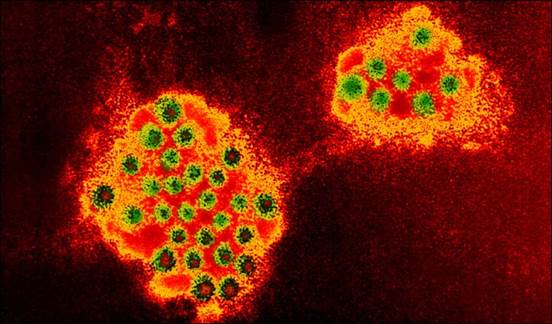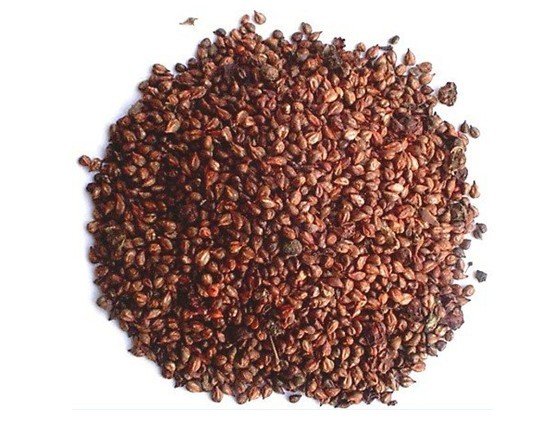The season for the Norovirus is
coming and this year it could be a bad one. Here's what you need to know to
protect yourself
Heads up, Australia - Sydney 2012 is
coming. Sadly, though, it’s not some exciting sporting event or festival, it’s
a new strain of a bug that causes vomiting and diarrhea.
Discovered by virologist Professor Peter
White at the University of New South Wales last year, It’s been causing havoc
in the UK and US ever since and this Is the first winter it’s likely to really
cause trouble on our shores.

It’s
a new strain of a bug that causes vomiting and diarrhea
“l knew straightaway it was a potentially
pandemic strain” says White. As many as 40,000 people could become infected.
The problem is that Sydney 2012 is a hybrid strain of the virus which makes it
more likely to evade detection by your immune system if you catch it. So how
can you reduce your risk of exposure?
Move away fast
If someone vomits near you, you want to get
out of their vicinity as fast as you can. “One of the reasons Norovirus is so
infectious is that you only need to be exposed to 20 particles of the virus to catch
it most other viruses need hundreds of particles explains norovirus expert
Professor Ian Goodfellow, from the University of Cambridge. If you can’t escape
completely say you’re stuck on a train at least move as far away as possible.
Your chance of catching it decreases the further you are from the source.
Ban the buffet
If there’s an outbreak in your area, it
might be worth avoiding buffet restaurants for a while, “On cruise ships it’s
been shown that communal serving implements are one of the most common ways the
bug is passed on” says Goodfellow. It’s not surprising as so many people touch
them, then put their hands close to their mouths. Admittedly, this
advice isn't vital for everyone. For most people, getting norovirus is
unpleasant and an inconvenience but not dangerous. However, Goodfellow says the
elderly or people whose immune systems are compromised should be careful, as
the virus can hang around for weeks or months in some people.
Fruitful remedies
One of the reasons it's hard to find a cure
for norovirus is that it doesn't grow in petri dishes. But studies using water
infected with the bug found grape seed extract damaged the virus. Pomegranate
and cranberry juice have also shown promise in test tube trials.

Grape
seed extract damaged the virus
Take probiotics
Probiotic drinks containing Shirota
bacteria won't stop people getting sick, but trials at Japan's Juntendo
University found it did reduce by a day the amount of time symptoms lasted.
Forget alcohol hand gels
They don't work against Norovirus. In fact,
in studies in the US, workplaces that used hand gels as their prime sterilizing
method were almost three times as likely to get hit by an outbreak as those
where staff were encouraged to wash their hands with soap and water. Wash
regularly - and always after visiting the bathroom or before eating. Use soap,
and scrub for long Pomegranate and cranberry juice have also shown promise in
test tube trials. enough to count slowly to 15. Dry your hands thoroughly.

Forget
alcohol hand gels
Eat more garlic
Allicin, the active ingredient in garlic,
is known to kill viruses similar to norovirus. Leading experts suggest it could
protect against the big nasty, too. According to researchers at the Medical
University of South Carolina, in the US, to ensure your garlic is at its most
potent, peel a clove and leave it exposed to the air for 15 minutes and then
eat it raw.
Isolate utensils
If someone at home does come down with the
virus, give them a separate set of utensils to use cups, plates, spoons, forks
- and also towels, while the bug lasts. The virus can be caught from hand
contact and it can hang around on hard surfaces and objects such as towels for
up to two weeks. In fact, there was a case in the US recently where a girls'
soccer team caught it from eating a packet of lollies kept near someone who was
sick!
Say it with bleach
Bleach, bleach and bleach some more. For
that same reason, when the outbreak is over clean the whole bathroom and the
sufferer's utensils thoroughly. "Disinfectant normally isn't strong enough
to kill the bug," says Goodfellow. "Only bleach will work."
If you have to clean up body fluids,
University of New South Wales experts suggest wearing gloves and a face mask to
reduce your risk of infection.
Finally, remember that the sick person is
still contagious for as long as 48 hours after the symptoms stop, so they
should stay at home for the duration. And if a work colleague returns to work
after only three days of being sick, treat them cautiously.